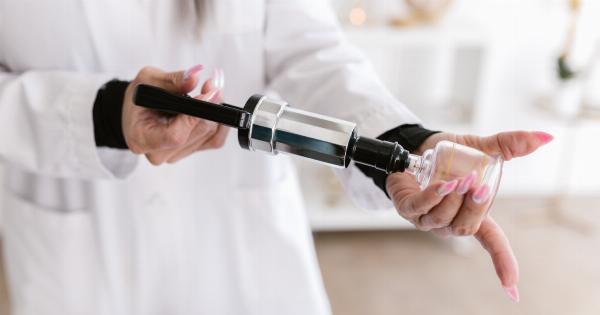Cracking your fingers can be a satisfying sensation, but have you ever wondered what actually happens to your fingers when they make that popping sound? The act of cracking your fingers is called joint manipulation, and there is a lot more going on than just the sound of gas escaping from your joints. Here are some things you should know about what happens when you crack your fingers.
What Causes the Sound of Finger Cracking?
The sound of a finger cracking is caused by gas being released from the joint. Each joint in your fingers is surrounded by synovial fluid. This fluid helps to nourish the joint and reduce friction during movement.
When you crack your fingers, you are stretching the joint capsule, which causes a drop in pressure inside the joint. This drop in pressure allows gases, mostly nitrogen, that are dissolved in the synovial fluid to form bubbles. When these bubbles collapse, they create the popping sound that you hear.
Is Cracking Your Fingers Bad for You?
There is no evidence that cracking your fingers is bad for your joints or causes arthritis.
A study published in the Journal of the American Board of Family Medicine found no link between knuckle cracking and osteoarthritis, even in people who had been cracking their knuckles for more than 30 years. However, excessive joint manipulation can cause problems. If you are cracking your fingers too often or with too much force, you could cause damage to the ligaments and tendons around the joint. This damage can lead to joint instability and chronic pain.
Why Do People Crack Their Fingers?
People crack their fingers for a variety of reasons. For some, it is a habit or a nervous tic. Others do it as a way to relieve tension or decrease stress.
Some people believe that cracking their fingers improves their range of motion or eases joint stiffness. However, there is no evidence to support these claims.
Can You Cracking Your Fingers Too Much?
Yes, you can crack your fingers too much. Cracking your fingers too often can lead to joint instability, chronic pain, and loss of grip strength.
It can also cause damage to the ligaments and tendons around the joint, which can weaken the joint and make it more susceptible to injury.
Is Cracking Your Other Joints Bad for You?
Cracking other joints in your body, such as your knees, neck, or back, is not necessarily bad for you, either.
The sound of cracking joints is still caused by gas being released from the joint, and there is no evidence to suggest that it causes any harm. However, excessive or forceful joint manipulation can cause joint instability and chronic pain.
Can Cracking Your Fingers Lead to Arthritis?
No, cracking your fingers does not lead to arthritis. There is no evidence to suggest that cracking your fingers or any other joints in your body increases your risk of developing arthritis.
Arthritis is a complex condition that involves many factors, including genetics, injury, and inflammation. It is not caused by cracking your joints.
What Is the Best Way to Stop Cracking Your Fingers?
If you want to stop cracking your fingers, the first step is to become aware of when and why you are doing it.
Try to identify any triggers for your habit, such as stress or boredom, and find alternative ways to cope, such as deep breathing or mindfulness meditation. You can also try keeping your hands busy with stress balls or hand exercises. If you are having trouble stopping on your own, consider talking to a healthcare professional for additional support.
What Are Some Alternatives to Finger Cracking?
If you want to relieve tension in your fingers without cracking them, there are many alternatives to consider. Some people find that stretching or massaging their fingers can help to increase flexibility and reduce stiffness.
Others find that warm or cold compresses can soothe achy joints. You can also try wearing a brace or splint to support your fingers and reduce pain during activities that strain your joints.
The Bottom Line
Cracking your fingers can be a satisfying behavior, but there is no evidence to suggest that it is harmful to your joints or causes arthritis. However, excessive joint manipulation can cause joint instability and chronic pain.
If you want to stop cracking your fingers, try to identify any triggers for your habit, find alternative coping strategies, and talk to a healthcare professional for additional support.




























